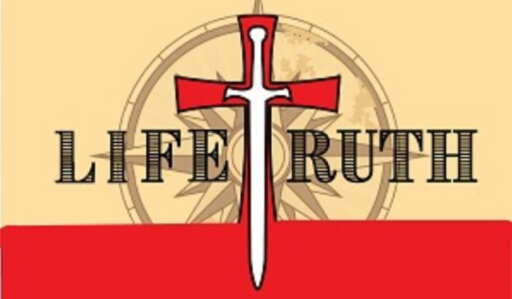Keith revisits his adventures in early church history. e shares what he has learned in chapter 3 and four of the books:
A History of the Christian Church
Williston Walker
Richard A. Norris, David W. Lotz, Robert T. Handy
Copyright © 1918, 1959, 1970, 1985 Charles Scribner’s Sons; Copyright renewed 1946 Amelia Walker Gushing and Elizabeth Walker.
Chapter 3
Jesus and the Disciples
John the Baptist was the forerunner of Jesus. He is said to be acetic.
Ascetic. As found on www.merriam-webster.com/
Noun
1: practicing strict self-denial as a measure of personal and especially spiritual discipline
an ascetic monk
an ascetic diet
2: austere in appearance, manner, or attitude
adverb
ascetically
?-‘se-it-k(?-)le
John’s ministry was one of being baptized and repenting from sin. He also Warne people to be prepared for the end times when the Messiah would come. Jesus counted him as the greatest of profits. What’s Jesus ministry began, many of John’s disciples to follow him instead
Jesus of Galilee
he was brought up in Nazareth, of Galilee, the land that was looked down upon by the Jews in Judea, because the people there were considered to be of mixed race. It was located at the crossroads of trade routes intersecting from Rome and the far east.
The author of this book suggests that it was at his baptism that Jesus realized he was the Messiah. Keith is of an opinion that Jesus realized this at a much earlier age. At any rate, it is a much-disputed topic of Bible scholars.
Matthew 4: 12-13 NASB
12 Now when Jesus heard that John had been taken into custody, He withdrew into Galilee;
13 and leaving Nazareth, He came and settled in Capernaum, which is by the sea, in the region of Zebulun and Naphtali.
Jesus Ministry Begins
after the arrest of the Baptist, Jesus began an itinerant ministry of preaching and healing. He also preached of repentance, and that the kingdom of God was nearby. He gathered his core of 12 disciples, as well as many others who would follow him. His ministry lasted from 1 to 3 years.
His Ministry Ends
The administration of Pontius Pilate was between 26-36 A.D. Jesus was likely crucified in the year 29.
His disciples fled, scattered to their homes, and quickly gathered once more at Jerusalem. They had a clear conviction that God had raised him from the dead.
The Kingdom of God
The kingdom of God was a primary teaching of Jesus. To be added as for those who acknowledged God is sovereign. It involved being forgiven, and displayed itself in love for God and other. The kingdom does not come out the price. It requires self-discipline, and unlimited forgiveness and our fellow man. For those who fail to discern and understand the kingdom which is dawning in Jesus’ ministry, there is only destruction.
Jesus Revolutionary Teaching
Most of Jesus’ teachings have parallels in the religious thought of his age, but he taught as one who had authority that other teachers did not.
Mark 1:22 NASB
22 They were amazed at His teaching; parking 1:22 NASB
for He was teaching them as one having authority, and not as the scribes.
About his claims were:
the least of his disciples is greater than John the Baptist,
that heaven and earth should pass away before his words.
He called the heavy-laden to him and offered them rest.
He promised those who confessed him before men that he would confess them before his Father.
He declared that none knew the Father but a Son,
and to anyone who the son would reveal the father.
He proclaimed himself Lord of the Sabbath.
that he had power to forgive sins.
Prayers of Jesus
He prayed and taught his disciples to pray.
It was not his to determine who should sit on his right hand and his left in the kingdom.
He prayed that the Father’s will, not his own, be done.
On the cross, he cried out: ”My God, my God, why hast thou forsaken me?”
his person: the person of one who is on the one hand a normal human being and on the other the bearer of God’s authority and active presence.
Resurrection
after he was crucified, he would raise from the dead. This was first witnessed by the women asked the tomb. Peter and the rest of the disciples also witnessed it. The risen Jesus was a turning point in the life of Paul, and was an encouragement for the scattered disciples.
The Holy Spirit
the gift of the Holy Spirit empowered and encouraged them. The Holy Spirit the church, and caused it to grow.
Chapter 4
The Early Christian Community
at the beginning, Christianity was considered a new sect of the Jewish faith, and was centered in Jerusalem. Very little is known about their culture in Jerusalem, and, and deals with spread into Gentile regions.
The early Christians called themselves the “poor” or the “saints”. They had a hope and expectation that Christ would return soon.
returns. Because they still consider themselves Jews, they were still active in temples life, and obedience to the law.
They practiced baptism, which they associated with receiving the Holy Spirit. Besides temple activity, they gather frequently to encourage each other, have prayer, and deals together.
The early leaders were the apostles. Other than Peter, John and Paul not much is known about the other apostles. They have drifted into obscurity, and legends about the them were written centuries later.
Greek Jews
persecution of Greek Jews in Jerusalem arose early. Deacons were appointed to ensure Christians were properly served. A controversy arose for accusing Sir Greeks blasphemy. at the stoning of Stephen, the Greek Jews fled and returned home. He this also meant that Christianity spread to communities outside of Jerusalem.
Persecution Under Herod
the Jews who remained there lived mostly at peace, until Herod regained power over the region.
Podcast: Play in new window | Download (Duration: 55:45 — 51.0MB)
Subscribe: Apple Podcasts | Amazon Music | Podchaser | RSS | More

